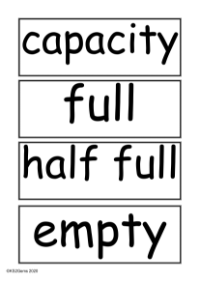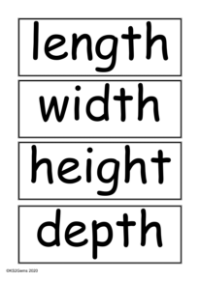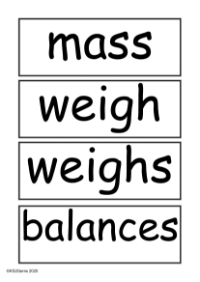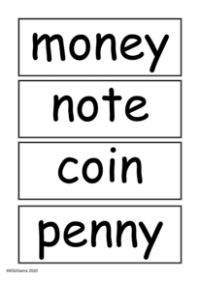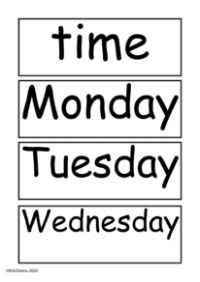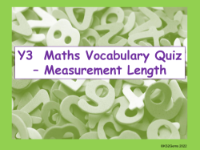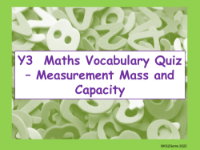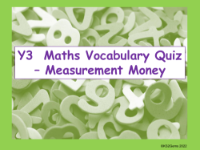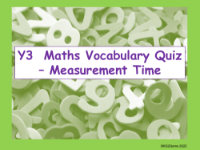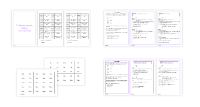Vocabulary - Measures: General
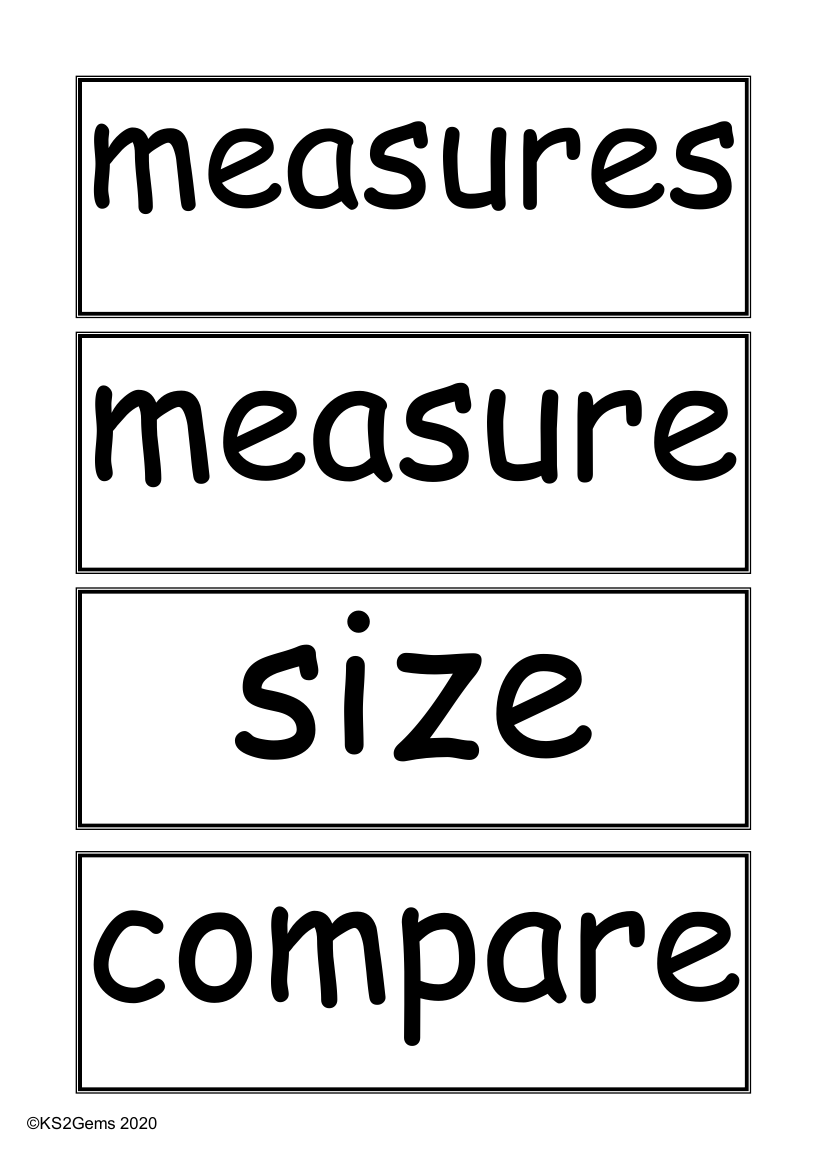
Maths Resource Description
The vocabulary list provided is a collection of terms commonly used in the context of measures and measurement, particularly relevant to KS2 students. The term 'measures' refers to the various methods and units used to determine the size or quantity of something. 'Measure' can be both a noun, referring to the act or process of measuring, and a verb, meaning to ascertain the dimensions, capacity, or amount of an item. 'Size' is a noun that describes the magnitude or dimensions of an object, while 'compare' is a verb that means to examine the similarities or differences between two or more items.
Further terms such as 'measuring' and 'scale' relate to the action of determining measurements and the range of values or sizes that can be used for comparison. 'Division' is a mathematical operation that can be used in the process of measuring, particularly when calculating units. Words like 'guess' and 'estimate' suggest a less precise measurement, based on approximation rather than exact figures. The list also includes expressions such as 'enough', 'not enough', 'too much', and 'too little', which are used to qualitatively describe whether a quantity meets, exceeds, or falls short of a requirement or expectation.
The vocabulary extends to terms that express quantities that are excessive or insufficient, such as 'too many' and 'too few'. Words like 'nearly', 'roughly', 'about', 'close to', 'about the same as', and 'approximately' are used when an exact measure is not necessary and an approximate value will suffice. To describe measures that are slightly beyond or less than a specific point, phrases such as 'just over' and 'just under' are used. Lastly, 'scale' and 'scaling' refer to the representation of measurements on a particular series of marks or to adjust the size or level of something in proportion to a certain standard or norm.
